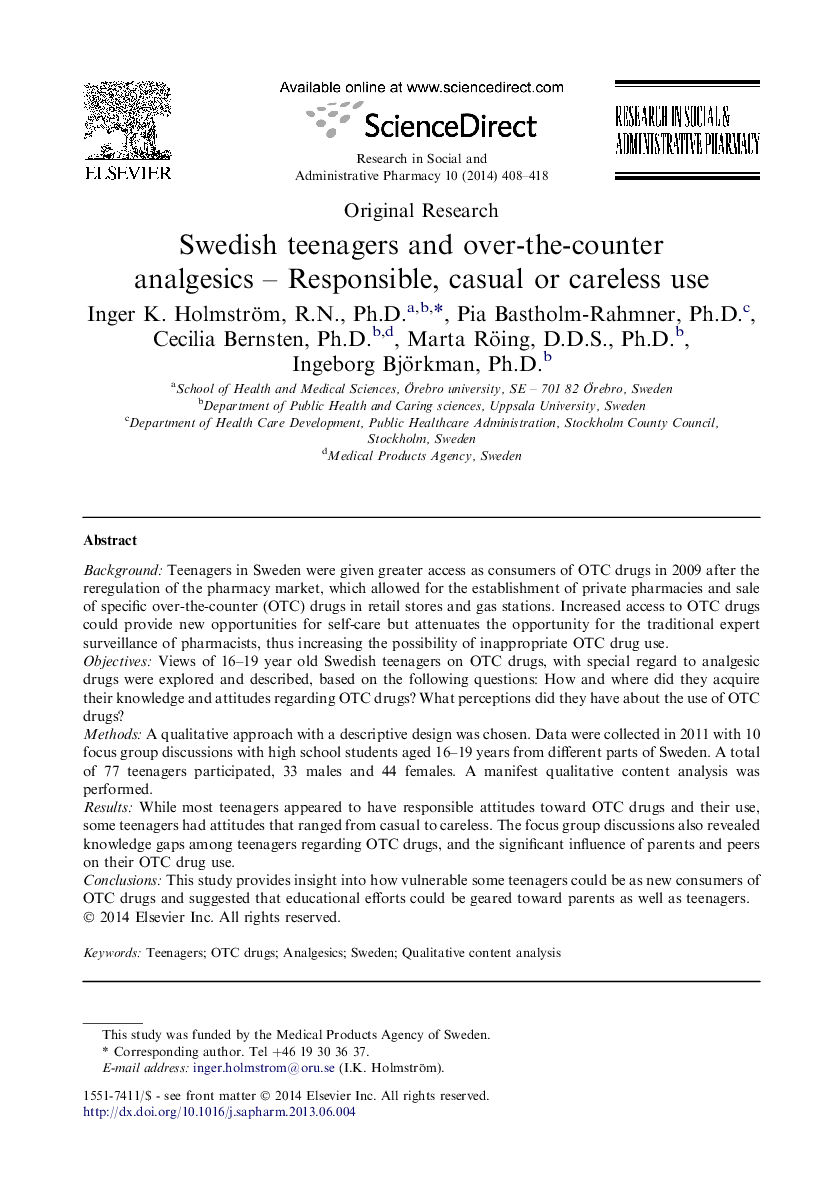| Article ID | Journal | Published Year | Pages | File Type |
|---|---|---|---|---|
| 2508578 | Research in Social and Administrative Pharmacy | 2014 | 11 Pages |
BackgroundTeenagers in Sweden were given greater access as consumers of OTC drugs in 2009 after the reregulation of the pharmacy market, which allowed for the establishment of private pharmacies and sale of specific over-the-counter (OTC) drugs in retail stores and gas stations. Increased access to OTC drugs could provide new opportunities for self-care but attenuates the opportunity for the traditional expert surveillance of pharmacists, thus increasing the possibility of inappropriate OTC drug use.ObjectivesViews of 16–19 year old Swedish teenagers on OTC drugs, with special regard to analgesic drugs were explored and described, based on the following questions: How and where did they acquire their knowledge and attitudes regarding OTC drugs? What perceptions did they have about the use of OTC drugs?MethodsA qualitative approach with a descriptive design was chosen. Data were collected in 2011 with 10 focus group discussions with high school students aged 16–19 years from different parts of Sweden. A total of 77 teenagers participated, 33 males and 44 females. A manifest qualitative content analysis was performed.ResultsWhile most teenagers appeared to have responsible attitudes toward OTC drugs and their use, some teenagers had attitudes that ranged from casual to careless. The focus group discussions also revealed knowledge gaps among teenagers regarding OTC drugs, and the significant influence of parents and peers on their OTC drug use.ConclusionsThis study provides insight into how vulnerable some teenagers could be as new consumers of OTC drugs and suggested that educational efforts could be geared toward parents as well as teenagers.
